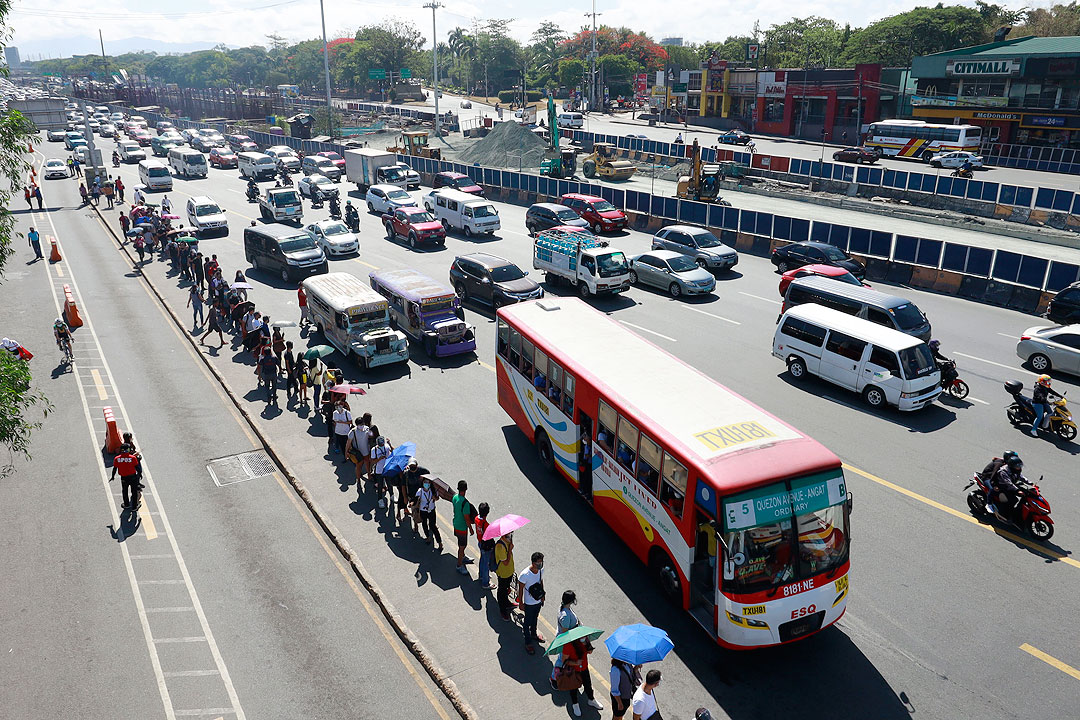By Russell Louis C. Ku
THE SENATE’S realignment of P10.83 billion from the Department of Transportation (DoTr) budget to support service contracting and the EDSA Busway will not be enough to address the problems currently faced by commuters, according to the Move as One Coalition, a transport advocacy.
The coalition’s John P. Sevilla, a former finance undersecretary who headed the Bureau of Customs (BoC), said that various government agencies should “reorient themselves and their goals properly” to be able to provide better road transport solutions.
“While public transportation has since been gradually restored (from when the pandemic started), there is still not enough of it. Most transport sector workers have endured long periods of no income or low income, even as commuters have faced difficulties getting rides at rush hour,” he said in a Viber message.
He added that President Rodrigo R. Duterte’s Build, Build, Build program has long ignored commuters and active transport users.
The Senate agreed to realign P10.83 billion in its version of the 2022 national budget which included increased funding for service contracting — paying transport workers to ply the roads and compensating them for low ridership — from P6 billion to P10 billion, the EDSA busway project, and active transport projects.
The coalition is lobbying for P150.48 billion in next year’s budget for investment in road transportation, with a focus on service contracting, active transport, and infrastructure such as terminals and bus stops.
It also expressed its support for cycling groups which called on Congress on Nov. 28 to increase the budget for bicycle lanes from P2 billion to P14 billion.
Mr. Sevilla said that while the government started to invest in bike lanes in response to the pandemic, more work needs to be done to ensure that bikers are protected on the road.
“Only a small fraction of the bike lanes, even on the busiest roads such as C-5 and EDSA, are physically segregated from motor vehicles. The quality of the bike lanes has also deteriorated significantly even just in the last six years. Lots of potholes, some (of which are) very large, and all definitely posing risks to cyclists,” Mr. Sevilla said.
Realignments in the funding for the Department of Public Works and Highways (DPWH), which has a proposed budget of P686.1 billion, are also needed to improve active transportation such as high-quality sidewalks on all roads, at-grade road crossings, and escalators or elevators for persons with disabilities and senior citizens.
“The newly opened bridges in Estrella-Mandaluyong and Pasig-Bonifacio Global City are perfect examples of how DPWH ignores the needs of pedestrians and that is unacceptable,” Mr. Sevilla added.
He added that transportation authorities should strengthen their capacity and refine their systems to ensure smoother implementation of their programs.
“I don’t think (the) Land Transportation Franchising and Regulatory Board and DoTr staff even know what the actual waiting time for rides is in different parts of Metro Manila, at different times of the day. They need to (understand these) and bring those down to reasonable levels,” Mr. Sevilla said.
He also said that transportation should also take priority as an issue to be tackled in the 2022 elections to see which candidates “displays a better understanding (on) the problems of ordinary commuters.”
Vice-President Maria Leonor G. Robredo said in a forum on Nov. 18 that she plans to move away from “car-centric” projects in favor of building active transport infrastructure, starting with traffic-congested areas.
Meanwhile, Senator Emmanuel D. Pacquiao said that he would push for “more Skyways” in Metro Manila.
